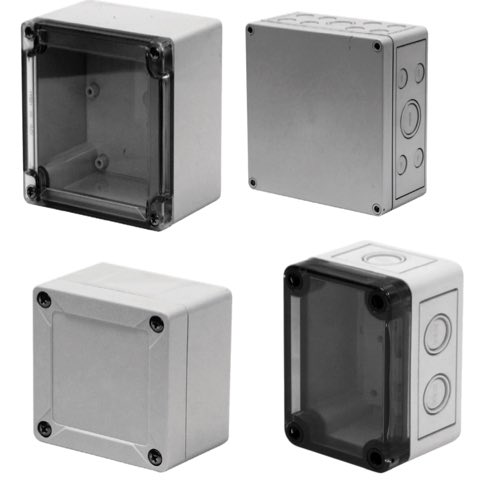Polystyrene Enclosures

Polystyrene is a popular material for enclosures because it is a low-cost, thermoplastic polymer that can be formed into many kinds of shapes and designs. It is easy to machine and assemble. It is more than serviceable for batteries and their components. Specialists consider it nearly as good as ABS for battery enclosures. And it is usually more cost-effective because it can be molded into small enclosures much more easily.
The limited resistance to UV radiation and environmental factors compared to more robust materials like fiberglass and polycarbonate make these enclosures especially well-suited for indoor use.
When it comes to making something unique, polystyrene is an exceptional choice. It is easy to change and can be drilled to create the right shape for your project. Even though there is not much weight to them, temperate climates will find these to be a great, solid storage box. Additional features like rubber gaskets can be applied to create a better seal.
Non-Metallic Enclosure Types
Characteristics of non-metallic enclosures:
NEMA 4x rating for outdoor use providing chemical resistance and protection from dust, debris, water and rain.
High insulation value, which provides insulation from cold and hot temperatures, but does not dissipate heat from inside the enclosure.
Non-conductive, meaning components cannot be grounded to the enclosure, but it still provides the same security and tamper resistance levels as metallic enclosures when properly locked.
Types of non-metallic enclosures:
Fiberglass
A thermoset polyester material reinforced with glass fibers. It is the most widely used non-metallic material in the industry. It has high impact strength and rigidity (dimensional stability), a superior working temperature range (-31˚F to 300˚F), excellent electrical properties, moisture and chemical resistance, as well as being cost effective.
Polycarbonate
High-performance thermoplastic resin processed by injection molding or sheet extrusion. It has superior impact resistance, good rigidity (dimensional stability), an extended temperature range (-31˚F to 180˚F), excellent electrical properties, fire retention, UV stability and corrosion resistance in some acidic surroundings. It is not suitable for environments with strong alkalis and organic solvents.
ABS or ABS blends
Acrylonitrile Butadiene Styrene is a common thermoplastic polymer processed by injection molding. It has high impact resistance, but less impact resistance in cold weather compared to polycarbonate, excellent electrical properties, superior chemical and moisture resistance, but a narrower temperature range than fiberglass (-40˚F to 248˚F).
Polyester
High-performance unfilled thermal plastic processed by injection molding. It has high impact resistance, but less impact resistance in cold weather than polycarbonate, excellent electrical properties, superior chemical and moisture resistance, but a narrower temperature range than fiberglass (-40˚F to 248˚F).

